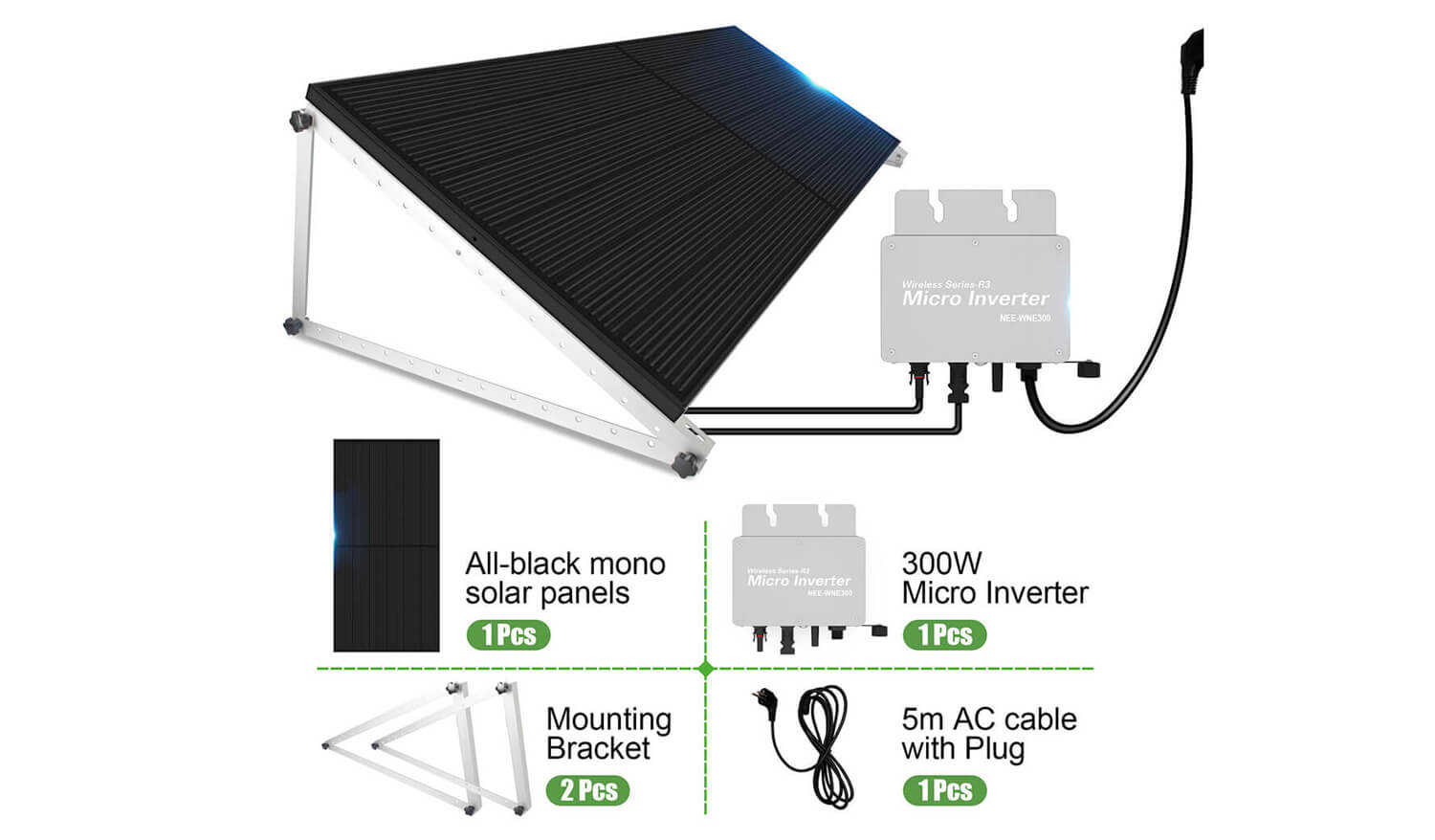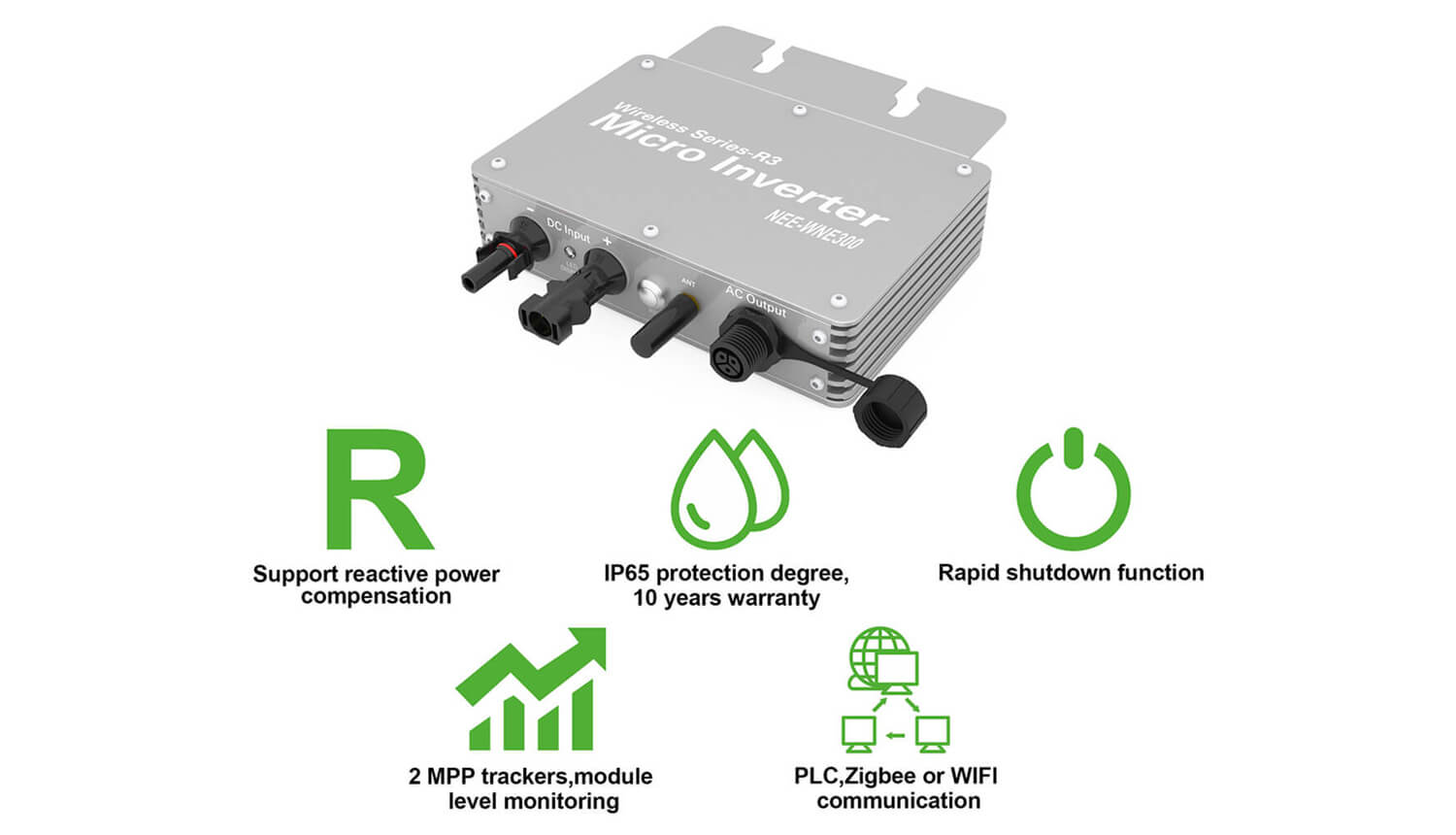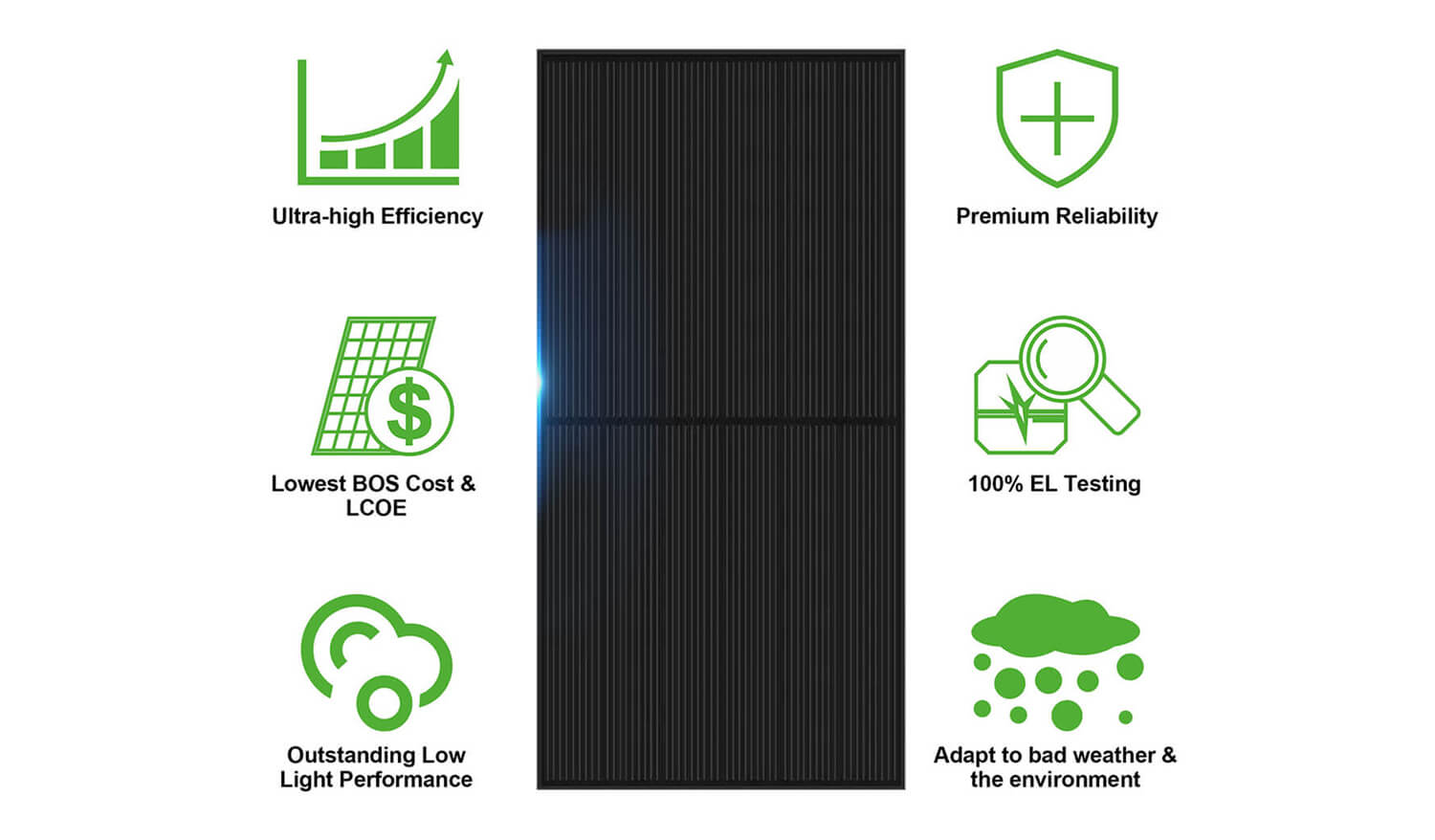
Balcony Solar Systems
Customizing Your Solar Solution: Different Types of Balcony Solar Systems
Balcony solar systems are a versatile and customizable solution for homeowners looking to harness the power of the sun and generate clean electricity right at their homes. There are several different types of balcony solar systems available, each with its unique features and advantages.
- Photovoltaic (PV) Balcony Solar Systems: PV balcony solar systems are the most common type of balcony solar systems. They use solar panels to capture sunlight and convert it into electricity through the photovoltaic effect. These systems typically consist of solar panels mounted on the balcony railing or roof, an inverter to convert the DC electricity produced by the panels into AC electricity used in homes, and a meter to measure the electricity production. PV balcony solar systems can be easily installed on most balconies, and the size and configuration of the system can be tailored to meet the specific needs and space constraints of the homeowner.
- Building-Integrated Photovoltaics (BIPV): BIPV balcony solar systems are designed to be integrated into the architecture of the building itself. Instead of installing solar panels on the balcony railing or roof, BIPV systems use solar panels that are incorporated into the design elements of the building, such as windows, walls, or roofs. BIPV systems offer a more aesthetically pleasing option for homeowners who prefer a seamless integration of solar panels into the overall design of their home. BIPV systems can also provide additional benefits such as improved insulation, shading, and reduced glare.
- Solar Thermal Balcony Systems: Solar thermal balcony systems are designed to capture the sun's heat and use it for domestic hot water or space heating. These systems typically consist of solar collectors installed on the balcony railing or roof, a heat transfer system, and a storage tank to store the heated water or fluid. Solar thermal balcony systems are particularly suitable for homeowners who have a higher demand for hot water or require space heating in their homes. These systems can provide significant energy savings and reduce the reliance on fossil fuels for heating purposes.
- Portable or Plug-and-Play Balcony Solar Systems: Portable or plug-and-play balcony solar systems are compact and portable solutions that can be easily set up and moved around on the balcony. These systems typically come with foldable solar panels, a built-in inverter, and a battery for energy storage. Portable balcony solar systems are an excellent option for homeowners who have limited balcony space, want the flexibility to move the system around, or need a temporary solar solution.

Micro Inverter
Size Matters: Determining the Optimal Size of Your Balcony Solar System
When it comes to balcony solar systems, size matters. Determining the optimal size of your balcony solar system is crucial to ensure maximum efficiency, optimal power generation, and the best return on investment.
- Energy Consumption: The first step in determining the optimal size of your balcony solar system is to assess your home's energy consumption. Consider your monthly electricity bills, the appliances and devices you use, and any future changes in energy needs, such as additions to your home or changes in lifestyle. Understanding your energy consumption patterns will help you calculate the right size of the solar system that can offset most, if not all, of your electricity usage.
- Available Space: The size of your balcony and the available space for solar panels will also play a crucial role in determining the optimal size of your solar system. Measure the dimensions of your balcony, assess the shading and orientation of the balcony, and consider any structural or aesthetic constraints. The available space will determine the maximum number of solar panels that can be installed and the overall capacity of the system.
- Budget and Financing: Your budget and financing options will also impact the size of your balcony solar system. Larger solar systems typically require a higher upfront investment, but they can generate more electricity and offer better long-term savings. Consider your budget and financing options, such as cash purchase, solar loans, or leasing, to determine the size of the solar system that aligns with your financial goals and constraints.
- Future Needs and Goals: It's essential to consider your future needs and goals when determining the size of your balcony solar system. Do you plan to expand your household or increase your energy consumption in the future? Are you interested in adding electric vehicles or other energy-intensive appliances to your home? Planning for future needs and goals can help you select a solar system that can accommodate your long-term energy requirements and save you more money in the long run.

Mono Solar Panel
Beyond Electricity Generation: Additional Features and Benefits of Balcony Solar Systems
Balcony solar systems are not only capable of generating electricity, but they also offer additional features and benefits that can enhance your overall experience and maximize the value of your investment.
- Space Utilization: Balcony solar systems are a great way to utilize the available space in your home effectively. By installing solar panels on your balcony, you can make use of previously unused or underutilized space to generate clean and renewable energy. This is particularly beneficial for urban dwellers who may have limited rooftop space or are unable to install solar panels on their roofs due to various reasons.
- Versatility: Balcony solar systems are versatile and can be customized to meet your specific energy needs. You can choose the size and capacity of the solar system based on your energy consumption patterns, available space, and budget. Additionally, balcony solar systems can be easily expanded or upgraded in the future to accommodate any changes in your energy needs or goals, providing you with flexibility and adaptability.
- Environmental Benefits: Like any other solar power system, balcony solar systems also offer significant environmental benefits. By generating clean and renewable energy from the sun, balcony solar systems help reduce greenhouse gas emissions, air pollution, and dependence on fossil fuels. This contributes to mitigating climate change, protecting the environment, and promoting a sustainable and greener way of living.








